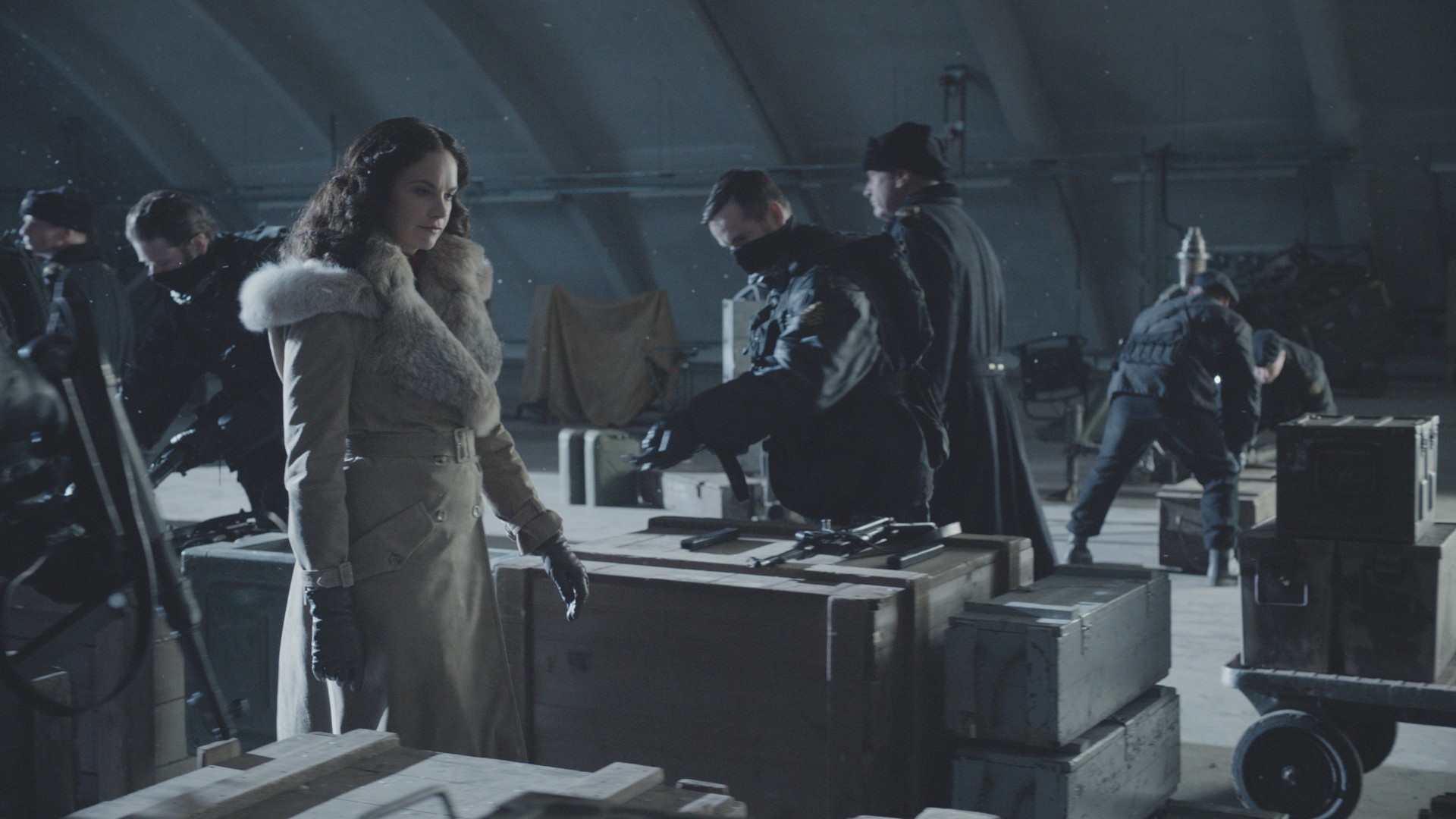Adapting a beloved property to another medium is one thing, but doing so a second time, a decade after a failed attempt in theaters, is something else entirely. Such is the situation where HBO and BBC One’s co-produced television adaptation fantasy of author Philip Pullman’s acclaimed His Dark Materials novel series finds itself. In 2007, New Line Cinema released The Golden Compass, the first of what was supposed to be many films adapted from Pullman’s books. Despite the directorial work of Chris Weitz and the acting chops of Nicole Kidman and Daniel Craig, however, it bombed.
Thankfully, any and all concerns that fans of Pullman’s books (or audiences who recall The Golden Compass‘s inability to point them northward) might have about the new show are unwarranted. Harry Potter and the Cursed Child playwright Jack Thorne’s new adaptation, based on the four episodes screened for critics in advance, presents a far more nuanced take on the original material. And while it may seem like yet another contender for the Game of Thrones crown that many other HBO series are now contending for, His Dark Materials strives to carve out its own niche in the current TV landscape.
This doesn’t mean that viewers are going to have an easy time of it, especially if they’ve never read any of Pullman’s books or seen The Golden Compass. For His Dark Materials posits an alternate reality to our own that, though it bears more resemblances to our world than not, the differences are quite stark. Armored bears? Hidden cities shrouded in the Northern Lights? Talking animals who serve as soulful companions to all persons? Audiences are in for one hell of a ride, should they decide to watch His Dark Materials, as it’s quite uncomfortable and even comes with a sick bag.
The long and short of it is this: In His Dark Materials, all people co-exist with personal daemons, animal companions who are essentially physical manifestations of the soul. People and their daemons are literally inseparable, and should anything ill befall one, the other will also suffer the same consequences. Enter the Magisterium, an all-powerful holy organization not unlike the Roman Catholic Church, whose rule over humanity is questioned by very few people. One such person is Lord Asriel (James McAvoy), who hides his niece Lyra (Dafne Keen) away at a university protected by its scholarly status from the Magisterium’s meddling. He does this, presumably, because his studies of “dust” suggest possibilities considered heretical and worthy of condemnation — if not death.

Lyra grows up an orphan in the care and tutelage of the college’s protection, hoping to eventually join her uncle on one of his many quests into the north. Unfortunately, some of his most recent work proves so dangerous his life is quite literally put in danger before Lyra’s own eyes, so he must leave her behind. An opportunity for her escape ultimately arrives but at a cost, as her friend and many, many other children have been taken from their families under dubious circumstances. So, Lyra absconds with the seemingly friendly Marisa Coulter (Ruth Wilson), who promises to help her find her missing friend and the others.
Of course, Coulter may not be what she seems — a fact that owes just as much to her working for the Magisterium as it does to Wilson’s performance, which manages to juggle plenty of charm, smarm, and blood-thirsty cunning simultaneously. Yes, McAvoy’s brash Asriel helps to open things up in the first episode, but it’s really Wilson’s Coulter and, in her own right, Keen’s young Lyra who carry the most weight throughout the first four episodes. All the while, Thorne’s scripts manage to flesh out just enough of Pullman’s books to render the enjoyably dense books into a similarly weighty serialized format. It all plunges the audience right into the thick of Lyra’s daemon and alethiometer-filled world without so much as an explanatory deep dive or a whimper.
Speaking of the “alethiometer,” which is the “golden compass” referred to in the 2007 film’s title, it doesn’t immediately figure into the main story of His Dark Materials. Or, at least Thorne and company go to great lengths to stifle its importance until its narrative presence is absolutely necessary. Whether this is meant to better reflect Pullman’s original stories, negate any and all potential influence from the 2007 film, or both, is unknown. What is known, though, is that it ultimately works. What results is a His Dark Materials adaptation more focused on significant character moments and dramatic developments, instead of a story incessantly worrying over yet another McGuffin.
Though Thorne’s adaptation is by no means perfect. Its first few episodes lay plenty of breadcrumbs in order to build the show’s world enough for it to make sense to audiences familiar with the books and ignorant newcomers alike. Even so, it drops these efforts (save the occasional faint reminder or two) in later episodes, so if viewers haven’t quite figured out what’s going on by then, there’s a good chance they will be lost. Then again, not everyone tuning in to Watchmen, Westworld, and Game of Thrones — either when new episodes premiered or after the fact — always understood what was happening.
‘His Dark Materials’ premieres Monday, November 4 at 9 p.m. ET on HBO.







